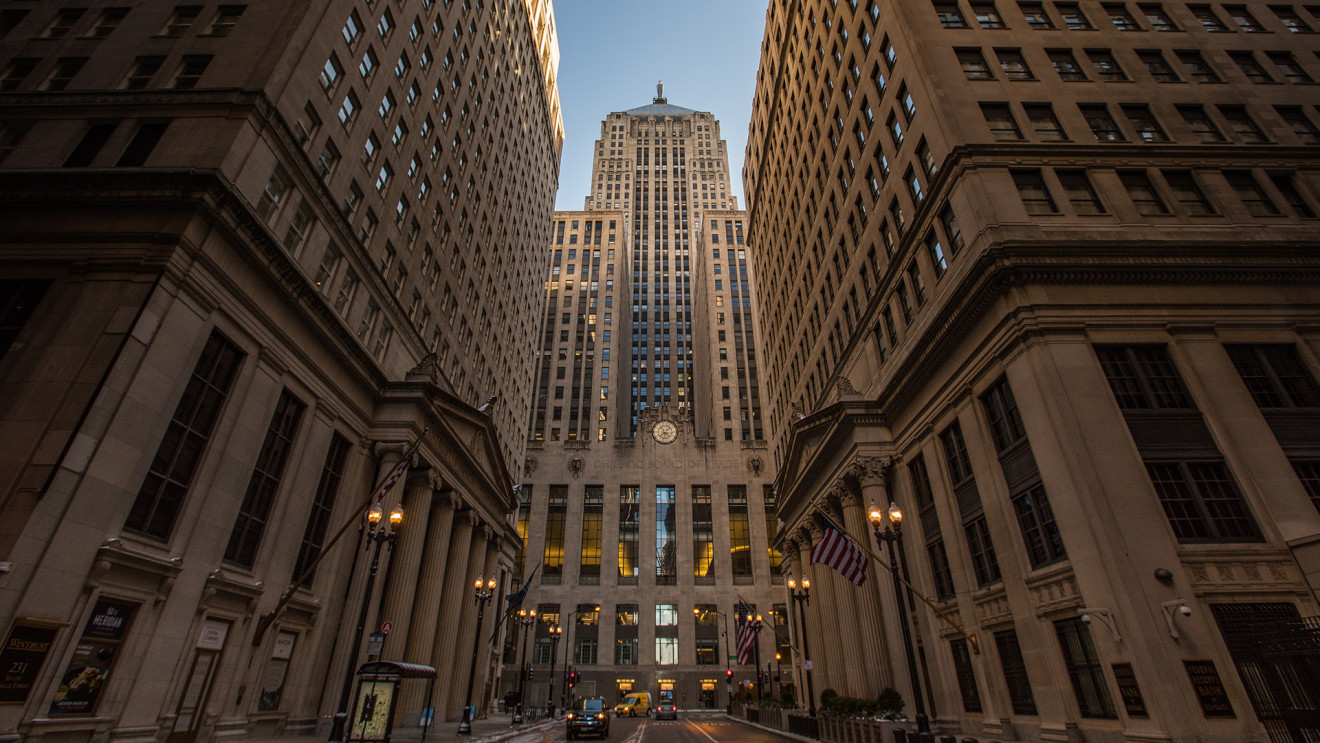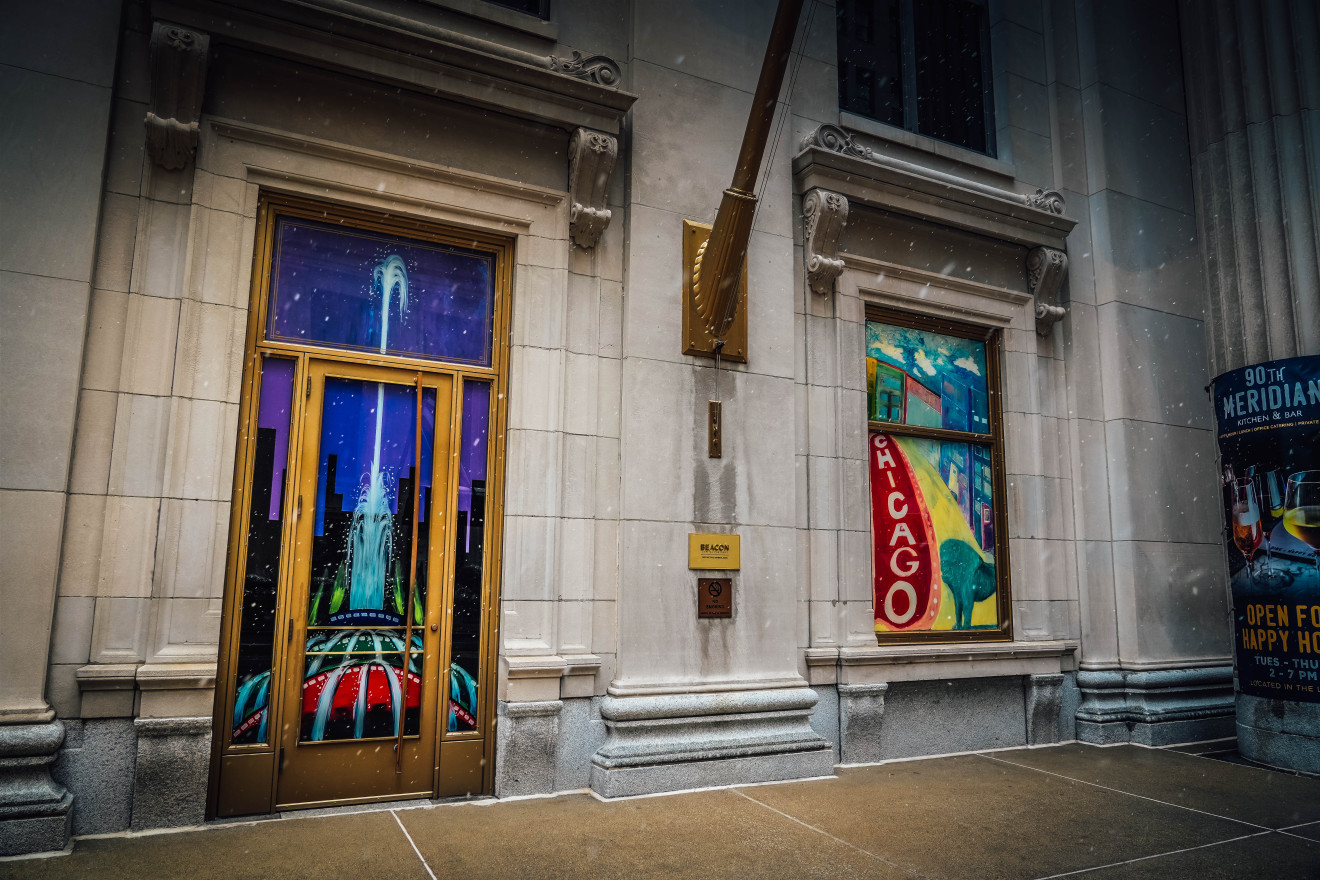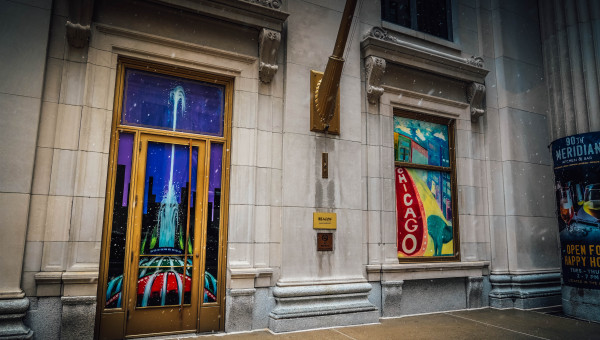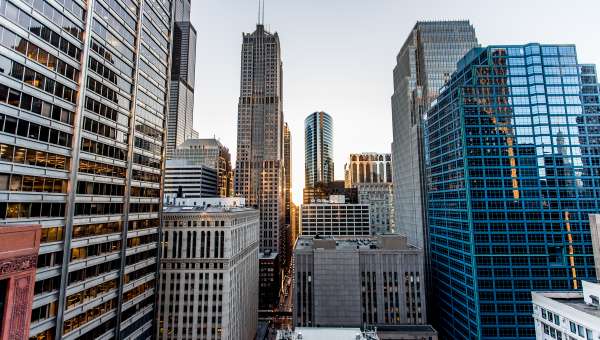Posted 16 months ago in Trending, LaSalle Corridor, Economy
5 MIN READ – Three proposals to create more than 1,000 mixed-income apartments at 111 W. Monroe St., 135 S. LaSalle St., and 208 S. LaSalle St. in the Loop were announced by Mayor Lori E. Lightfoot today as finalists for City financial assistance through the LaSalle Reimagined initiative.
"Today's announcement represents the culmination of months of work by the Mayor's Office to solicit, review, and identify IFP submissions that will reimagine LaSalle Street," Mayor Lightfoot said. "The LaSalle Street corridor is a vital economic engine for our entire city, and we must ensure it remains that way by transforming it from a homogenous office district into a thriving, mixed-use community. By converting underutilized office space to residential units, we will make the Loop a safer, more dynamic and vibrant place to live and work."
Representing nearly 320 affordable units and more than $550 million in total investments, the proposals were selected from nine developer responses to the City’s 2022 Invitation for Proposals (IFP) to repurpose a portion of LaSalle's 5 million square feet of vacant commercial space as mixed-income housing.
Each finalist meets the IFP’s objectives to revitalize an underperforming historic property, provide 30% of the total housing units at affordable levels, and create neighborhood-oriented building amenities that contribute to a dynamic, mixed-use, downtown environment. There are presently no affordable apartments on or near LaSalle within the Loop.

Each finalist proposal includes a request for Tax Increment Financing (TIF) assistance from the LaSalle Central TIF district, and potentially other public sources, which would subsidize the affordable unit construction and related building improvements. The affordable units in each project are intended for tenants earning an average 60% of the Area Median Income (AMI), or $50,040 for a two-person household.
Planned for 1.6 million square feet of space, the winning IFP responses and development teams include:
- The Monroe Residences & Hotel, 111 W. Monroe St.
The Prime Group Inc. and Capri Interests LLC
The $180 million proposal would adaptively re-use 610,000 square feet of space to create 349 studio, one-, and two-bedroom units within the upper stories of a 1910 National Register high-rise. Related improvements would include lobby renovations, a bar and restaurant, and basement parking. The proposal’s TIF request is $40 million. A separate, 226-key hotel project would proceed simultaneously within the building’s lower floors. - The Field Building, 135 S. LaSalle St.
Riverside Investment & Development and AmTrust Properties
The $258 million proposal would adaptively re-use 750,000 square feet of space to create 430 studio, one-, and two-bedroom units within a 1934 landmark high-rise. Related improvements would include the activation of more than 80,000 square feet of multi-level retail space that could include a neighborhood grocer. The proposal’s TIF request is $115 million. - The LaSalle Residences, 208 S. LaSalle St.
The Prime Group Inc.
The $130 million proposal would adaptively re-use 222,500 square feet of space to create 280 studio, one-, and two-bedroom units within a 1914 landmark high-rise. Related improvements would include 6,900 square feet of retail upgrades, a full-service restaurant, plus a variety of tenant amenities. The proposal’s TIF request is $33 million.
Mayor Lightfoot launched the LaSalle Reimagined initiative with the Department of Planning and Development (DPD), Housing (DOH), Transportation (CDOT), and Cultural Affairs and Special Events (DCASE) in September 2022 to comprehensively guide LaSalle’s transition from an office-oriented monoculture to a dynamic, mixed-use environment that leverages the corridor’s historic properties and public spaces. The IFP was issued to ensure the anticipated conversion of vacant commercial spaces to residential uses would significantly exceed the City’s minimum affordability requirements, currently 20% of the total units for projects seeking public financial assistance or zoning changes.
“As the Loop population continues to grow and the market leverages new housing opportunities in underutilized commercial spaces, these projects are laying a foundation for a dynamic, mixed-use corridor that serves all Chicagoans, regardless of their incomes,” DPD Commissioner Maurice Cox said.
The nine proposals were evaluated for alignment with the IFP goals, potential catalytic impact and economic feasibility, among other criteria, including efforts to exceed minimum diversity requirements for construction teams.
“The LaSalle Reimagined initiative was a purposeful partnership between the City and developers. It allowed the government and stakeholders to create a new reality for the city, and engage in discussions, brainstorming and unconventional planning centered on building conversions and creating more affordable homes,” DOH Commissioner Marisa Novara said. “For a city with profound racial and economic segregation, steps like these are what help us transform Chicago into a more equitable city.”
The selected finalists will proceed to the next phase of the City's standard review, underwriting, and approval processes, including evaluations by the Community Development Commission, Commission on Chicago Landmarks and City Council. TIF requests are tentative until approved by City Council.
Given the IFP’s success and stakeholder interest in a more equitable and resilient downtown, DPD and DOH are making additional LaSalle Central TIF funding available for adaptive re-use projects that provide 30% housing affordability at an average 60% AMI, offer new neighborhood-oriented public amenities, and exceed City minimums for minority and women-owned participation, among other requirements.
DPD will also be accepting Small Business Improvement Fund (SBIF) applications in September for smaller, private projects that revitalize the corridor’s ground-floor commercial with neighborhood-oriented uses. Grants up to $300,000 will be made available for approximately 15 projects that meet SBIF program guidelines.
CDOT will simultaneously complete an engineering assessment of the corridor and initiate community engagement for proposed streetscape work that creates a more inviting public realm, while DCASE works with the Chicago Loop Alliance and property owners to activate vacant storefronts and other spaces with arts and culture installations.



